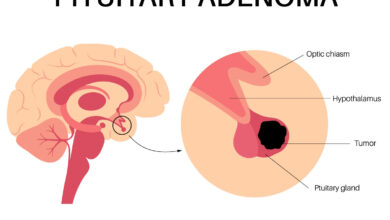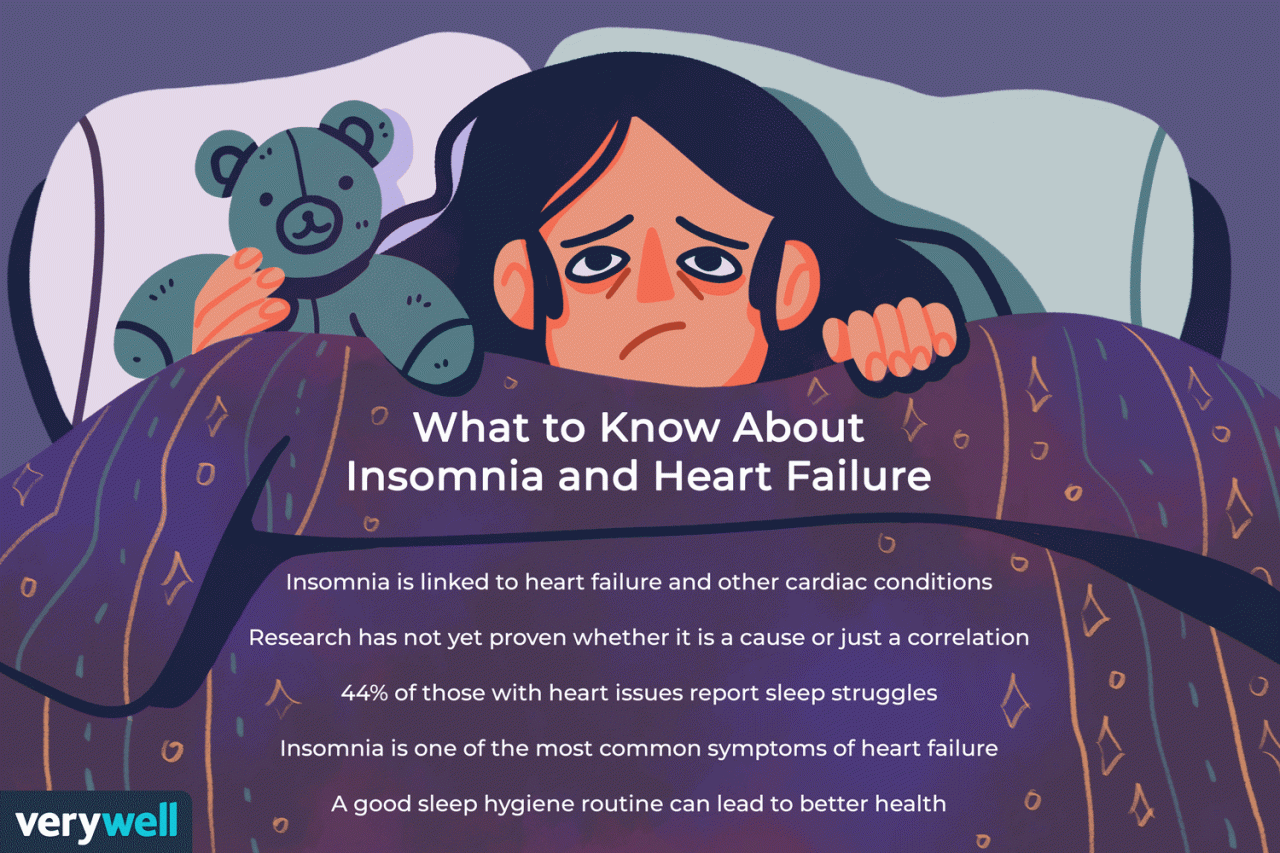
Do people who need less sleep have a special gene? This question delves into the fascinating interplay between genetics and sleep, exploring the potential for inherited variations in our sleep requirements. We’ll examine research on sleep genetics, potential mechanisms, and the current understanding of this complex relationship, along with the implications for public health and personalized medicine.
Human sleep needs vary significantly between individuals. Some people naturally feel refreshed after a few hours, while others require more. This difference sparks the question: are these variations rooted in our genes? This exploration delves into the scientific research, highlighting both the progress made and the ongoing challenges in unraveling the genetic underpinnings of sleep.
Introduction to Sleep Needs and Genetics
Sleep is fundamental to human health, impacting everything from mood and cognitive function to physical well-being. While the average adult needs 7-9 hours of sleep, individual sleep needs vary significantly. Some individuals naturally require less sleep, while others need more. Understanding the factors contributing to these variations is crucial for promoting healthy sleep habits.Genetics play a significant role in shaping numerous human traits, including sleep patterns.
This influence manifests in a variety of ways, including variations in sleep duration and the propensity for certain sleep disorders. Understanding the interplay between genetics and sleep is a complex but important area of research.
Human Sleep Needs and Variations
Human sleep needs vary significantly across the lifespan. These differences are influenced by several factors, including age, health status, and individual predisposition. The quantity of sleep required is not the sole indicator of sleep quality; sleep patterns, disruptions, and overall health are also crucial components.
| Age Group | Average Sleep Need (hours) |
|---|---|
| Newborn (0-3 months) | 14-17 |
| Infant (4-11 months) | 12-15 |
| Toddler (1-2 years) | 11-14 |
| Preschooler (3-5 years) | 10-13 |
| School-age child (6-13 years) | 9-11 |
| Teenager (14-17 years) | 8-10 |
| Young Adult (18-25 years) | 7-9 |
| Adult (26-64 years) | 7-9 |
| Older Adult (65+ years) | 7-8 |
Genetics and Human Traits
Genetics are a significant factor in influencing a wide range of human traits. The study of genetics reveals how specific genes contribute to the expression of various characteristics. Inherited genetic variations can affect an individual’s predisposition to certain conditions, including sleep disorders.
Heritability and Sleep Duration
The concept of heritability describes the extent to which variations in a particular trait within a population can be attributed to genetic differences. Studies indicate a significant heritability component in sleep duration, suggesting a genetic influence on individual sleep needs. This does not imply a deterministic relationship, but rather a predisposition or tendency. For example, family history often reveals patterns of sleep duration or sleep disorders.
Genetic Variations Potentially Linked to Sleep Regulation
Several genetic variations have been identified as potentially influencing sleep regulation. These variations are not definitively causative but highlight the complex interplay of genes in shaping sleep patterns.
| Gene | Potential Role in Sleep Regulation |
|---|---|
| PER2 | Regulation of circadian rhythms, influencing sleep-wake cycles |
| CRY1 | Circadian rhythm regulation, potentially affecting sleep-wake cycles |
| CLOCK | Circadian rhythm control, potentially influencing sleep-wake cycles and sleep duration |
| DEC2 | Circadian rhythm regulation, potentially affecting sleep duration |
Scientific Research on Sleep and Genes

Unraveling the intricate relationship between our genes and sleep patterns is a fascinating pursuit. While the idea of a single “sleep gene” is likely an oversimplification, scientific research is steadily uncovering the complex interplay of genetic factors influencing our sleep needs and behaviors. This exploration delves into the methodologies used in these studies, highlighting key findings, and acknowledging the limitations of current knowledge.Understanding the genetic basis of sleep is crucial for developing personalized strategies for improving sleep quality and addressing sleep disorders.
While some wonder if people who need less sleep possess a special gene, the reality is far more complex. The connection to sleep patterns and overall health is fascinating, but perhaps more concerning is that heart disease is the top cause of death in women, yet many are unaware of early warning signs. This alarming statistic highlights the importance of proactive health checks.
Ultimately, understanding the interplay between sleep, genetics, and potential health risks like heart disease is key to a more informed and proactive approach to our well-being.
Research in this area promises to shed light on individual differences in sleep requirements and potentially pave the way for more effective treatments.
Methodologies Used in Sleep Gene Studies
Research investigating the genetic influences on sleep employs various methodologies, each with its own strengths and limitations. Twin studies, comparing identical and fraternal twins, provide valuable insights into the heritability of sleep traits. Genome-wide association studies (GWAS) scan the entire genome to identify genetic variations associated with sleep phenotypes. These studies help pinpoint specific genetic regions linked to sleep duration and quality.
Molecular studies further examine the mechanisms by which these genes regulate sleep-related processes within the body.
Examples of Research Findings on Sleep-Related Genes
Several genes have been implicated in sleep regulation, though the impact of individual genes is often subtle and influenced by other factors. For example, studies have explored the role of genes involved in the production of melatonin, a hormone crucial for regulating the sleep-wake cycle. Variations in these genes can affect melatonin levels, potentially impacting sleep duration and timing.
Research has also examined genes related to neurotransmitter systems, like those involved in dopamine and serotonin pathways, as they are known to play roles in sleep regulation.
Limitations of Existing Research
Current research faces challenges in isolating the precise impact of individual genes on sleep duration. The complexity of sleep regulation, involving numerous genes and environmental factors, makes it difficult to establish direct causal relationships. Furthermore, the significant variations in sleep patterns among individuals, influenced by factors like diet, exercise, and stress, further complicate the analysis. Environmental factors often mask or modify the effects of specific genetic predispositions.
Comparison of Research Designs
Different research designs, like twin studies, family studies, and GWAS, offer complementary perspectives on the genetic underpinnings of sleep. Twin studies excel at estimating heritability, while GWAS pinpoint specific genetic markers. However, each design has its limitations. For example, twin studies may not accurately reflect the diversity of the general population, while GWAS can struggle to explain the complex interactions between genes.
Challenges in Isolating the Impact of Single Genes on Sleep Duration
Sleep is a complex process influenced by multiple genetic and environmental factors. A single gene likely doesn’t dictate sleep duration; rather, the cumulative effect of many genes and their interactions with the environment is more likely to be the determining factor. This complexity makes it challenging to isolate the influence of a single gene. Researchers must consider the potential interplay of genetic variants with lifestyle choices, environmental exposures, and other genetic factors.
Gene-Environment Interactions in Sleep Patterns
The relationship between genes and sleep is not simply a direct cause-and-effect. Gene-environment interactions are paramount. For instance, a genetic predisposition toward shorter sleep duration might only manifest when coupled with a stressful lifestyle. Conversely, a person with a genetic predisposition for longer sleep duration might find their sleep patterns altered by engaging in regular physical activity.
The interplay between genetic predispositions and environmental influences creates a complex landscape that researchers are still striving to fully understand.
Exploring Potential Genetic Mechanisms
Unraveling the intricate dance between our genes and sleep reveals a fascinating interplay of biological pathways and environmental influences. While the precise genetic underpinnings of individual sleep needs remain largely elusive, significant research points towards a complex web of interacting factors. This exploration delves into the potential genetic mechanisms that shape our sleep patterns.The biological pathways governing sleep are incredibly intricate and multifaceted.
Sleep regulation involves a delicate balance of neurotransmitters, hormones, and cellular processes, orchestrated by various regions in the brain. These pathways are influenced by genetic variations that can subtly alter their function.
Biological Pathways in Sleep Regulation
Sleep regulation is a complex process involving numerous biological pathways. These pathways involve various neurotransmitters and hormones, with each playing a specific role in the sleep-wake cycle. The interaction between these elements is crucial for the maintenance of healthy sleep.
Genes Affecting Neurotransmitter Systems
Many genes directly influence neurotransmitter systems, which are essential for transmitting signals between neurons. Variations in these genes can alter the levels or activity of neurotransmitters like serotonin, dopamine, and norepinephrine, all of which play crucial roles in sleep.
- Genes involved in the production or regulation of serotonin, a neurotransmitter linked to mood and sleep, can affect the timing and quality of sleep. Variations in these genes might explain why some individuals experience insomnia or other sleep disorders.
- Dopamine, a neurotransmitter associated with reward and motivation, also influences sleep patterns. Genetic variations impacting dopamine pathways could contribute to differences in sleep latency or duration.
- Norepinephrine, a neurotransmitter involved in alertness and arousal, also plays a role in regulating sleep-wake transitions. Variations in genes associated with norepinephrine synthesis or receptor function might influence the transition from wakefulness to sleep.
Circadian Rhythms and Their Genetic Basis
Circadian rhythms, our internal biological clocks, are fundamental to regulating the sleep-wake cycle. These rhythms are governed by genes that control the expression of proteins, including the crucial protein, CLOCK. These genes influence the timing of sleep and wakefulness, synchronizing our internal clocks with the external environment.
- The CLOCK gene, a key regulator of circadian rhythms, influences the timing of various bodily functions, including sleep. Variations in this gene have been linked to alterations in sleep-wake cycles.
- The PER and CRY genes are also crucial components of the circadian clock, and their interactions with CLOCK determine the precise timing of sleep-wake cycles.
Interactions Between Sleep Genes and Other Genetic Factors
Sleep regulation is likely influenced by a complex interplay of genetic factors. Beyond genes directly associated with sleep, variations in other genes can influence sleep patterns through indirect mechanisms. For instance, genes associated with metabolism, stress response, and even psychological traits can indirectly impact sleep.
Environmental Influences on Sleep-Related Gene Expression
Environmental factors play a crucial role in modulating the expression of sleep-related genes. Exposure to light, noise, and temperature can affect the timing and duration of sleep. Even factors like diet and exercise can influence the activity of genes involved in sleep regulation.
While some wonder if people who need less sleep have a special gene, the reality is often more complex. Financial worries significantly impact sleep quality, and dealing with those stresses can be tough. Learning how to manage financial stress, like exploring strategies in how financial stress affects sleep and what you can do about it , might actually be more important than searching for a sleep-related gene.
Ultimately, good sleep hygiene and managing life’s pressures are key, regardless of any genetic predisposition.
Current Understanding and Future Directions
Our understanding of the complex interplay between sleep needs and genetics is still evolving. While some studies hint at potential genetic influences on sleep duration and quality, the field is far from fully elucidating the specific genes and mechanisms involved. This is a critical area of research, as sleep plays a crucial role in various aspects of health and well-being.The current body of research suggests a strong possibility that individual variations in sleep patterns are influenced by a combination of genetic and environmental factors.
However, the exact contribution of each factor and the specific genes involved are still largely unknown. Further investigation is needed to unravel these intricacies.
Current State of Knowledge
Research has identified some candidate genes potentially linked to sleep regulation. These genes are often involved in the complex biological processes controlling circadian rhythms and sleep-wake cycles. However, the evidence is not conclusive, and often studies show modest associations, meaning that the impact of these genes on sleep needs might be subtle or influenced by other factors. Replication across different populations and methodologies is necessary to solidify these findings.
More robust and comprehensive studies are required to ascertain the precise role of these candidate genes.
Future Research Needs
Further research is crucial to clarify the intricate relationship between genes and sleep. Understanding the complex interplay of multiple genes, their interactions, and the impact of environmental factors is vital. To fully understand the genetic underpinnings of sleep, it’s necessary to investigate how genetic variations influence sleep quality, duration, and the timing of sleep.
- Genome-wide association studies (GWAS): These studies examine the entire genome to identify genetic variations associated with sleep traits. Larger sample sizes and diverse populations are necessary to strengthen the validity and generalizability of findings. For instance, studies focused on specific ethnic groups can reveal unique genetic factors influencing sleep patterns.
- Functional studies: Researchers need to investigate how identified genetic variants affect the function of sleep-related proteins and pathways. This requires sophisticated molecular biology techniques and advanced genetic modeling.
- Epigenetic studies: Epigenetic modifications, which alter gene expression without changing the DNA sequence, can be influenced by environmental factors and might play a role in sleep regulation. Investigating how environmental factors interact with genetic predispositions to influence sleep is important.
- Interdisciplinary collaborations: Collaboration between geneticists, sleep researchers, and clinicians is essential. Integrating data from different disciplines can provide a holistic view of sleep genetics.
Potential Implications of Understanding Genetic Influences on Sleep
Understanding the genetic basis of sleep needs has potential implications for personalized medicine. This knowledge could lead to the development of tailored sleep interventions, diagnostics, and therapies. For example, individuals with genetic predispositions to sleep disorders could receive preventative measures or targeted treatments. This could significantly impact public health and reduce the burden of sleep disorders.
Ethical Considerations
Researching sleep genetics raises several ethical concerns. The potential for genetic discrimination, the informed consent process, and the responsible use of genetic information need careful consideration. Researchers must ensure data privacy and avoid stigmatizing individuals based on their genetic profile.
| Area of Research | Specific Research Needs |
|---|---|
| Genetic Variation and Sleep Traits | Identify specific genetic variants associated with different sleep phenotypes (e.g., short sleepers, long sleepers, sleep disorders). |
| Gene-Environment Interactions | Investigate how environmental factors (e.g., diet, lifestyle, stress) interact with genetic predispositions to influence sleep patterns. |
| Sleep Disorders and Genetics | Determine the role of genetics in the development of sleep disorders like insomnia, sleep apnea, and narcolepsy. |
| Sleep and Health Outcomes | Examine the relationship between sleep genetics and other health outcomes, including cardiovascular health, mental health, and cognitive function. |
Illustrative Examples of Sleep Genetics

Unraveling the genetic threads of sleep is a complex tapestry woven with individual variations. While the exact mechanisms remain somewhat elusive, exploring hypothetical scenarios can illuminate the potential interplay of genes and sleep patterns. These hypothetical families and their unusual sleep characteristics offer a glimpse into the intricate world of sleep genetics.Understanding the possible genetic underpinnings of sleep patterns is crucial for developing a deeper appreciation of the diverse ways our bodies regulate sleep.
Such understanding is vital in identifying individuals at risk for sleep disorders and potentially guiding personalized interventions.
A Hypothetical Family with Unusual Sleep Patterns
Consider a family where several members consistently require significantly less sleep than the general population. They report feeling fully rested and productive after only 4-5 hours of sleep, while their peers need 7-9 hours. This consistent pattern across generations suggests a potential genetic component. Environmental factors, such as lifestyle choices, could also play a role, but the consistency within the family points to a possible hereditary influence.
Ever wondered if people who naturally need less sleep have a special gene? While the science behind sleep needs is complex, researchers are exploring potential genetic links. Interestingly, similarly, despite long-term treatment, HIV can persist in spinal fluid and be linked to cognitive problems, as detailed in this fascinating article despite long term treatment hiv persists in spinal fluid and is linked to cognition problems.
This raises questions about the intricate interplay between genetics, health, and the human body, ultimately prompting further investigation into the potential genetic factors influencing sleep requirements.
This unusual sleep trait, while not necessarily a disorder, highlights the diversity of human sleep needs and the potential genetic influences.
Possible Genetic Underpinnings
Several genes likely contribute to the observed sleep pattern in the hypothetical family. Variations in genes related to the production and regulation of neurotransmitters, such as melatonin and serotonin, might be involved. Other genes influencing circadian rhythm, the body’s internal clock, could also be implicated.
Hypothetical Genetic Variations and Potential Impact on Sleep
| Gene | Hypothetical Variation | Potential Impact on Sleep |
|---|---|---|
| CLOCK | A specific single nucleotide polymorphism (SNP) | Altered circadian rhythm, potentially leading to a shorter sleep need. |
| PER2 | A missense mutation | Delayed or advanced sleep-wake cycle, potentially influencing sleep timing. |
| ADORA2A | A deletion variant | Impact on adenosine signaling, affecting sleep pressure and sleep drive. |
| DEC2 | A functional variant | Potentially leading to a shorter sleep duration requirement. |
Gene Interactions and Sleep Needs
The interaction between different genes is crucial in determining an individual’s sleep need. A combination of variations in multiple genes, each contributing a small effect, can cumulatively influence the overall sleep duration required. For instance, a variation in CLOCK might predispose an individual to a shorter sleep duration, while a variation in PER2 might further refine that sleep need.
Understanding these intricate interactions is essential to fully grasp the complexity of sleep genetics.
Polygenic Risk Scores and Sleep Duration
Polygenic risk scores (PRS) can be applied to sleep duration. A PRS for sleep duration could identify individuals who carry multiple genetic variants associated with shorter or longer sleep needs. Such scores, while not yet routinely used in clinical practice, could potentially provide valuable insights into individual sleep patterns and contribute to personalized sleep recommendations. This is a rapidly evolving area of research.
Public Health Implications: Do People Who Need Less Sleep Have A Special Gene
Unraveling the genetic underpinnings of sleep offers a powerful new lens through which to view public health strategies. Understanding how genes influence sleep patterns could revolutionize how we approach sleep-related issues, potentially preventing widespread health problems and improving the overall well-being of populations. This knowledge could be particularly valuable in developing targeted interventions for sleep disorders and promoting better sleep hygiene across diverse communities.This deeper understanding of sleep genetics could lead to a paradigm shift in healthcare, enabling proactive measures to enhance sleep quality and address potential sleep-related health risks.
By identifying individuals at risk for sleep disorders or sleep-related health issues early, we can implement personalized strategies for improving sleep hygiene and potentially mitigating the development of associated chronic conditions.
Potential Impact on Public Health Strategies
A deeper understanding of sleep genetics could lead to more effective public health campaigns focused on promoting healthy sleep habits. Tailored recommendations for sleep hygiene based on individual genetic predispositions could be more effective than generalized advice, potentially improving sleep quality and reducing the prevalence of sleep-related issues. For example, public health initiatives could emphasize the importance of optimizing sleep environments and routines for individuals with specific genetic profiles associated with sleep disturbances.
Implications for Personalized Medicine Approaches to Sleep Disorders
Personalized medicine approaches to sleep disorders could significantly benefit from genetic insights. Knowing an individual’s genetic predisposition to certain sleep disorders, like insomnia or sleep apnea, allows for earlier diagnosis and potentially more effective treatments. This personalized approach could range from lifestyle modifications tailored to individual genetic factors to the development of targeted medications or therapies. Early interventions could significantly reduce the long-term health consequences of sleep disorders.
Examples of Improving Sleep Hygiene and Overall Well-being
Genetic information could be used to develop personalized sleep hygiene strategies. For instance, an individual with a genetic profile suggesting difficulty falling asleep might benefit from a specific sleep schedule or relaxation technique, tailored to their genetic makeup. Similarly, a person predisposed to sleep apnea might be advised on specific lifestyle changes and monitored more closely for early detection.
This personalized approach could be integrated into primary care settings, allowing for proactive interventions to promote healthy sleep habits.
Societal Impacts of Understanding Sleep Genetics
Understanding the genetic basis of sleep has potential societal impacts that extend beyond individual health. Improved sleep quality could lead to increased productivity and economic benefits, as better rested populations are generally more efficient and less prone to errors. A greater awareness of the genetic influences on sleep could also foster more supportive societal environments, including improved workplace policies that accommodate individual sleep needs.
Furthermore, this knowledge could reduce societal biases surrounding sleep-related issues.
Importance of Responsible Communication of Research Findings, Do people who need less sleep have a special gene
Communicating research findings on sleep genetics requires careful consideration of ethical implications. It’s crucial to avoid the misinterpretation of genetic predispositions as deterministic factors. Individuals should be informed that genetic predisposition does not equate to inevitability, and lifestyle choices still play a significant role in sleep quality. Clear and accessible communication of research findings, along with education on the importance of lifestyle factors, will help prevent misinterpretations and foster responsible application of this knowledge.
Transparency and open dialogue are essential to ensure this new understanding of sleep genetics benefits all members of society.
Final Conclusion
The investigation into whether people who need less sleep possess a special gene reveals a complex interplay of genetics, environment, and individual differences. While current research provides valuable insights, further study is crucial to fully understand the genetic basis of sleep needs. The potential implications for personalized medicine and public health strategies are significant, offering a path toward a deeper understanding of sleep and its crucial role in our well-being.





